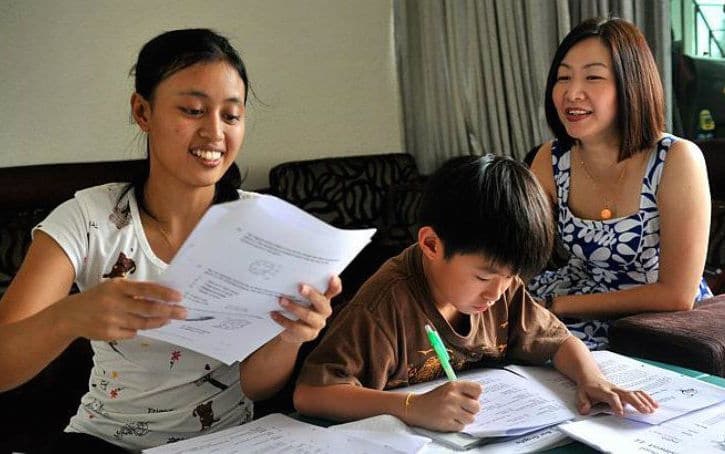
Know your rights and equally, your helper’s rights
In this ongoing series on foreign domestic workers’ rights, Karien van Ditzhuijzen from HOME talks us through important aspects of hiring, managing and looking after a foreign domestic worker – from knowing your rights and your duties, to dispelling urban myths.
In this episode we look at the official rules regarding you and your domestic worker’s rights – as covered in MOM’s Work Permit Conditions. Because not many employees would have read up on those complicated legal documents, we sum up the most important rules below:
As an employer of a domestic worker you must:
- Provide upkeep & maintenance of FDW (including adequate food & medical costs)
- Provide safe working conditions
- Provide acceptable accommodation
- Bear the cost of repatriation
- Pay salary, allowances & levy on time
- Purchase medical insurance
- Provide adequate rest
- Provide a weekly day off, or payment in lieu by ‘mutual agreement’
- Not retain original work permit and visit pass
- Not cause or knowingly permit the foreign employee to be engaged in any illegal, immoral or undesirable conduct or activity
- Not ill-treat the foreign employee (including abuse, neglect, causing of injury or abandonment)
- Inform the authorities about a missing FDW within 7 days. Read More: Open Letter to my Future Employer
A foreign domestic worker must:
- Work only for the employer specified on the work permit
- Perform only household and domestic duties
- Reside at the residential address stated on the work permit
- Undergo regular medical examinations
- Not get married to a Singaporean citizen or PR without approval from MOM.
- Not become pregnant
- Not be involved in any illegal, immoral or undesirable activities, including breaking up families in Singapore

Many of these things seem obvious, but at the same time, they can be quite vague. Because what is adequate food, really? At HOME shelter, we have come across many women that were fed only one slice of bread for breakfast, or instant noodles for lunch – hardly enough for someone doing strenuous physical work (and meals should be nutritionally sound, ideally with vegetables, carbs, and protein). Since last year, MOM’s updated website offers an Employer’s Guide with more details on what officially comprises adequate food and accommodation in their opinion.
Read More: Why You Shouldn‘t Treat Your Helper as Part of the Family
As you can see from the above, if a domestic worker gets into trouble with the law, the employer would only be complicit herself if she caused or knowingly permitted the offence. Yet many employers still like to err on the side of caution, by unnecessarily restricting a domestic worker’s movement during her time off. By being aware of the actual rules in place, we can make informed decisions on what rules we set for her, both inside and outside of our house. Because I am sure we would all like our helpers to lead a comfortable life, to recharge during their day off, and to have the freedom to socialise freely during this time , wouldn’t we?

What else can you do to ensure a good working relationship with your helper while both sides follow the rules?
- Discuss the Work Permit Conditions with your helper and make sure she understands them.
- Explain consequences for both her and yourself if they are breeched.
- Build mutual trust. Ask her to come to you if she encounters problems, so you can try to fix them together.
Read more: NEW! A Book about FDWs Written by Domestic Workers in Singapore
HOME: Humanitarian Organisation for Migration Economics (HOME) is a registered charity dedicated to assisting foreign workers in Singapore.






 View All
View All





 View All
View All








 View All
View All








